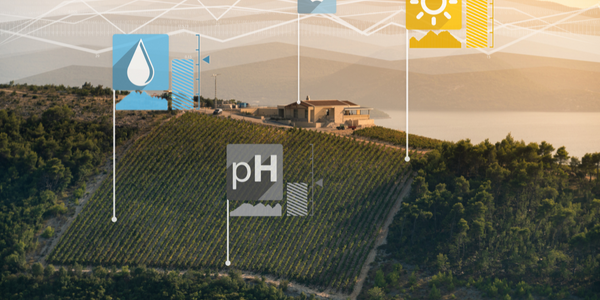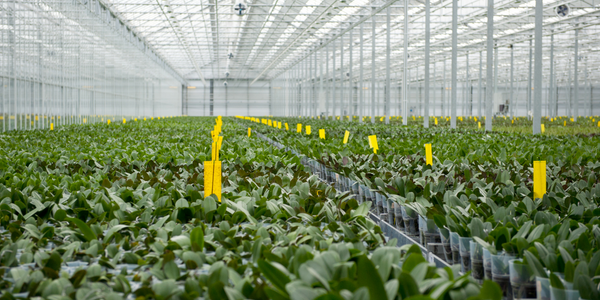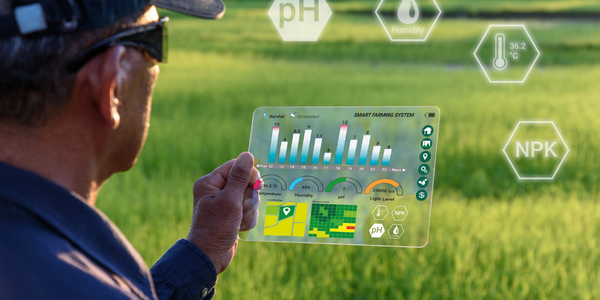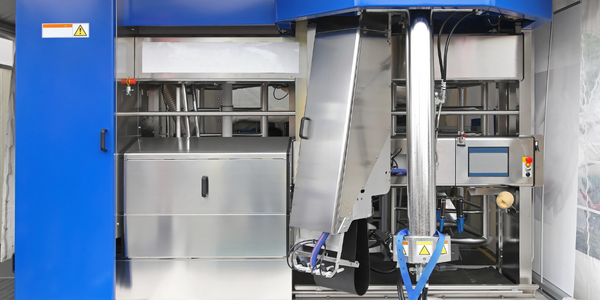Customer Company Size
Large Corporate
Region
- America
Country
- United States
Product
- QlikView
Tech Stack
- QlikView Server
- QlikView Publisher
Implementation Scale
- Enterprise-wide Deployment
Impact Metrics
- Productivity Improvements
- Cost Savings
Technology Category
- Analytics & Modeling - Real Time Analytics
Applicable Industries
- Agriculture
Applicable Functions
- Sales & Marketing
Use Cases
- Inventory Management
- Real-Time Location System (RTLS)
Services
- Data Science Services
About The Customer
Alabama Farmers Cooperative, Inc. (AFC) is a regional federated supply and marketing agricultural cooperative that provides value to its members. Organized in 1936 and governed by a board of directors elected by its membership, AFC operates for the benefit of its 47 member associations, which include approximately 90 retail locations. Through diversity and strong leadership, AFC has become one of the largest farmer-owned agriculture-related businesses in the Southeastern United States. This complex organization, with annual sales of more than $300 million and more than 2,300 employees, has grown through a series of joint ventures, including Agri-AFC, a purchasing organization, as well as acquisitions, such as Anderson’s Peanuts, a major national marketer of seeds and raw peanuts; Biologic, a developer of forage blends for wild game; Bonnie Plant Farm, one of the largest suppliers of vegetables, herbs and flowering annuals in the continental U.S.; and SouthFresh Farms, a leading grower and processor of premium quality catfish.
The Challenge
Alabama Farmers Cooperative, Inc. (AFC) is a regional federated supply and marketing agricultural cooperative that provides value to its members. The organization, with annual sales of more than $300 million and more than 2,300 employees, has grown through a series of joint ventures and acquisitions. However, AFC was greatly challenged to determine product margins and profitability accurately. Data was stored in various systems, and reporting was a cumbersome, manual process. Because of this difficulty, profitability analysis could only be done on a monthly basis, and confined to a small subset of the more than 3,000 product lines AFC carries. Seasonal variability is a mainstay of its business, so “managing uncertainty” is a way of life with a tremendous impact on profitability.
The Solution
In the span of only four months, about a dozen QlikView applications have been developed by one person in AFC’s Computer Services group and deployed to AFC’s executive team, finance department, store managers, sales managers and salespeople. Financial applications provide the management team with in-depth insight into AFC’s finances from the regional level all the way down to individual products. This enables AFC to identify the most profitable product lines and the most effective channels to distribute its products, and also to forecast demand based on past sales. Inventory applications enable each of AFC’s retail outlets to view not only their own inventory, but also the inventory of other locations – reducing duplicate purchasing and accelerating product sell-through. Sales applications provide insight into the sales performance of geographic regions and individual sales representatives. With Publisher, users only have to log in once to get access to all of their applications, and developers have a streamlined way to push out new applications.
Operational Impact
Quantitative Benefit

Case Study missing?
Start adding your own!
Register with your work email and create a new case study profile for your business.
Related Case Studies.

Case Study
Intelligent Farming with ThingWorx Analytics
Z Farms was facing three challenges: costly irrigation systems with water as a limited resource, narrow optimal ranges of soil moisture for growth with difficult maintenance and farm operators could not simply turn on irrigation systems like a faucet.

Case Study
Greenhouse Intelligent Monitoring and Control Solution
Farming Orchids is the most successful form of precision farming in Taiwan, and also the most exported flower. Orchids need a specific temperature and humidity conditions to grow and bloom, and its flowering time may not be in line with market demands, so the price collapses when there is overproduction. Therefore, some farmers began to import automated greenhouse control systems for breeding and forcing, which not only improves quality, but also effectively controls the production period and yield to ensure revenue. In 2012, an orchid farmer built a Forcing Greenhouse of about 200 pings (approximately 661 Square Meters) in Tainan, Taiwan. The system integrator adopted Advantech’s APAX-5000 series programmable automation controllers to build the control platform, coupled with Advantech WebAccess HMI/SCADA software, to achieve cloud monitoring. The staff of the orchid field can monitor important data anytime via smart phone, iPad, and other handheld devices, and control the growth and flowering conditions. System requirements: In the past, most environmental control systems of orchid greenhouses in Taiwan used PLCs (Programmable Logic Controller) with poorscalability and control, and could not be connected to the Internet formonitoring from the cloud. For advanced database analysis and networking capability, the PC platform must be adopted. Therefore, PAC Systems (Programmable Automation Controller) with both PLC programming capabilities andPC functions is a better choice.The environmental control of the Orchid greenhouse switches on and off devices like fan, shade net, cooling/heat pump, liquid flow control, water-cooling wall etc. It is controlled by a control panel of electric controllers, and is driven by a motor, to adjust the greenhouse temperature, humidity, and other environmental conditions to the set parameters.

Case Study
Precision beekeeping with wireless temperature monitoring
Honeybees are insects of large economic value and provide a vital service to agriculture by pollinating a variety of crops. In addition, bees provide us with valuable products such as honey, beeswax, propolis, bee venom, etc. Monitoring of honeybee colony health, population, productivity, and environmental conditions affecting the colony health have always been exceedingly difficult tasks in apiculture. Research has shown that even small deviations (by more than 2°C) from the optimal temperatures have a significant influence on the development of the brood and the health of adult bees.

Case Study
Enabling Internet of Things Innovation in Agriculture
DigiBale, wanted to apply technology know-how and IP from implementations successfully to more agriculture sectors including cotton, forestry, sugarcane and cattle. However, farmers and growers still have worries about the connected technology.









